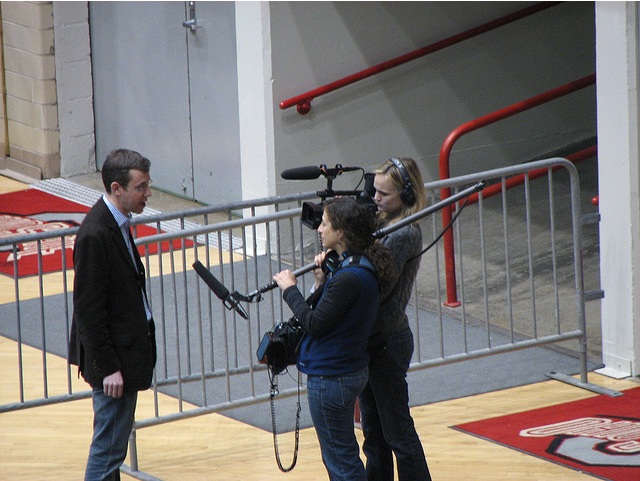Media training like a reporter
Nothing prepares an executive for an interview with a reporter like– an interview with a reporter. So, it’s no surprise that as a reporter and the senior strategist at BlissPR, I have been called upon to do some of the media training for our firm’s clients. Personally, it is the best of both worlds for me. I get to appease my insatiable curiosity and learn new things without the need to write a compelling story on deadline. What could be better?
In a recent media training session with four senior executives, I came away with a few nuggets of knowledge that might be helpful to those who need to help corporate leaders be more effective in front of the press.
- Drill down—Of course, you’ll come prepared to the training session with a series of questions that will reflect the type of content your client will be asked for from reporters at different publications. But let me give you a secret—rarely does a reporter follow a set list of questions during an interview. Sure, we send off a smattering of questions to the communications vice president so that they can prep their executive for the interview, but the truth is, we really conduct interviews by the seat of our pants. Don’t get me wrong. We’re definitely prepared and we will use the questions as a guideline for the interview. But more often or not, we stray. Something the interviewee says will pique our interest and we’re often off and running in another direction. That is what happened when I media trained these executives a few weeks ago. I had my set list of questions and asked exactly one—the rest of my training had me drilling down into the answer from the first question. It was there that I found a couple of story ideas—not one from my list of questions.
- Lead with the positive—When you critique your executive, always lead with the positive. These senior leaders are at the top of their game in their areas of expertise, but in most cases, dealing with the media isn’t one of them. Granting interviews to the media isn’t usually at the top of their To Do list often because such interactions cause worry, anxiety and self-doubt. So even if your executive was horrible, find something positive: did he/she exhibit good posture; did he/she make good points; or was he/she witty? After you’ve encouraged them, then make those suggestions that can lead to better interviews. Be concise and give them quick tips. No more than three.
- Ask for questions –At the end of each training session, make sure you leave time for them to ask you questions. That is usually where I think the executive finds the most value. I have been asked the most basic questions—ones I never thought to answer in the media training session. For example, one woman asked me if she should always wear a blazer on TV and what color should it be. Another question was how to best handle an aggressive reporter who won’t let you finish the answer to the question.
Above all, let the executive know that the reporter desperately needs them for the story, and in some cases, may be just as nervous as the executive.
Connect with Toddi:
Phone: 212.840.1661
Email: toddi@blisspr.com
Twitter: @toddigutner
LinkedIn: Toddi Gutner
